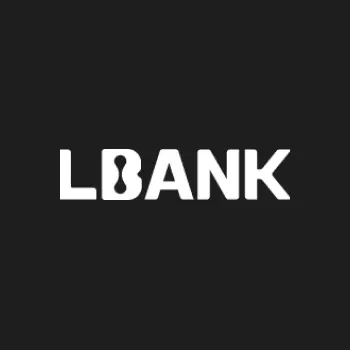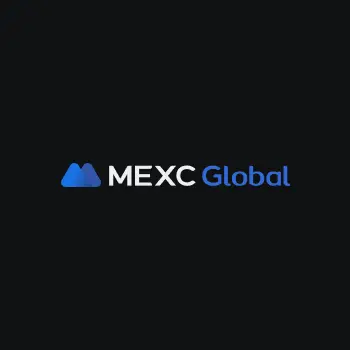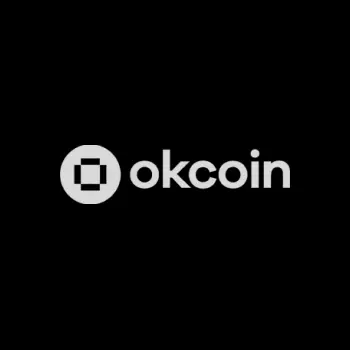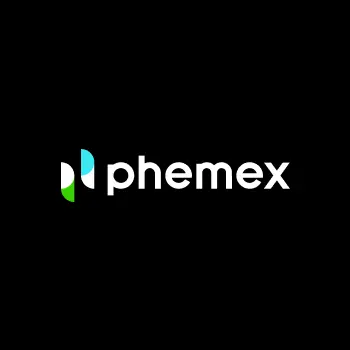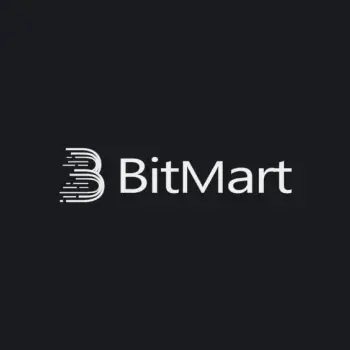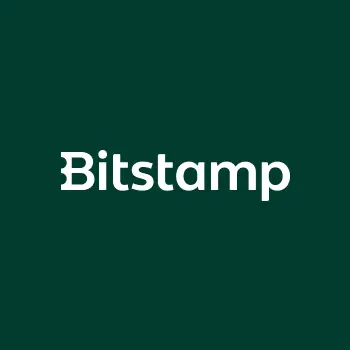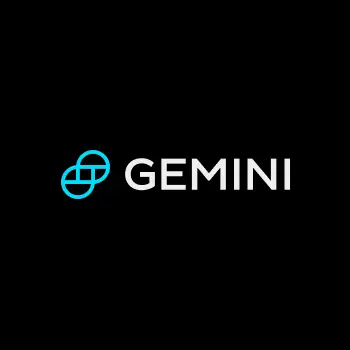Best USD Coin Exchanges in 2024
Best USD Coin Exchanges in 2024
Here are the best USD Coin exchanges the CCN team has reviewed.
promotions
Receive $10 in Bitcoin when you register with a referral link and buy $100 worth of crypto on Okcoin.Coins
promotions
Invite a friend and earn up to 30% of their trading fees as a reward.Coins
promotions
Earn $10 in Ethereum (ETH) when you stake $100 in ETH for the first time, up to $30 in rewardsCoins
Review of Our Top 10 USD Coin Exchanges
Before you navigate the rest of the page, look at these snippets of the USDC exchanges on our shortlist.
1. Blockchain.com
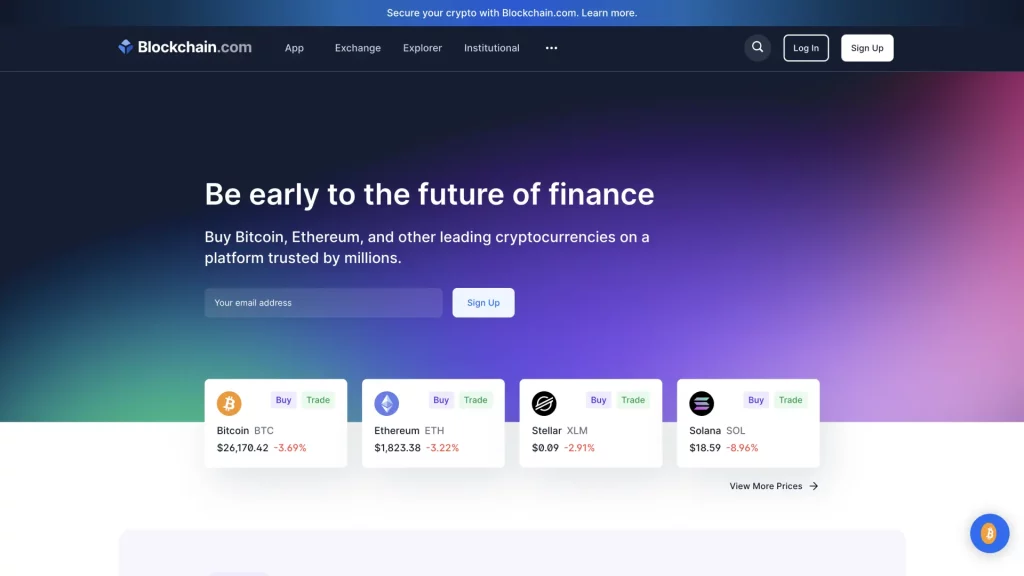
- spot trading
- margin trading
-
staking
3
No result
- Bitcoin
- Ethereum
-
Bitcoin Cash
28
No result
- Bank transfer
- Sepa
-
Faster Payments
49
No result
- English
- Spanish
-
Portuguese
2
No result
- Singapore
- Puerto Rico
- English
- Learn and Earn
- Podcasts
- Research and Analysis
2. LBank
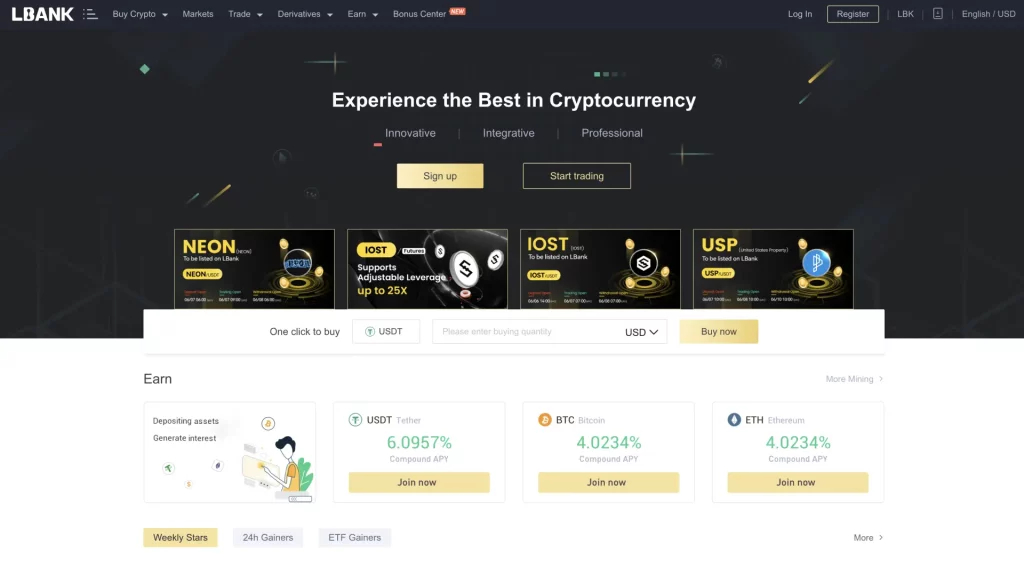
- spot trading
- derivatives trading
-
futures trading
5
No result
- Ethereum
- Terra
-
Polygon
241
No result
- Visa
- MasterCard
-
Bank transfer
255
No result
- English
- Russian
-
Spanish
27
No result
- 2FA SMS
- 2FA Google Authenticator
- English
- Turkish
-
Polish
24
No result
- Academy
- Guides
- Videos
3. MEXC

- Free
- spot trading
- derivatives trading
-
futures trading
9
No result
- SHIBA INU
- Wrapped Dogecoin
-
ADAX
191
No result
- Visa
- MasterCard
-
Bank transfer
110
No result
- English
- Russian
-
Turkish
14
No result
- Seychelles
- Estonia
-
Switzerland
2
No result
- 2FA Google Authenticator
- 2FA SMS
- English
- Turkish
-
Vietnamese
5
No result
- Videos
- Learn and Earn
-
Blog
2
No result
4. Okcoin

- 3.99%
- spot trading
- OTC trading
-
staking
1
No result
- Bitcoin
- Ethereum
-
Tether
101
No result
- Visa
- MasterCard
-
ApplePay
107
No result
- English
- United States
- Canada
-
United Kingdom
26
No result
- 2FA SMS
- 2FA Google Authenticator
- English
- Blog
- Developer Grant
-
Videos
1
No result
5. Phemex
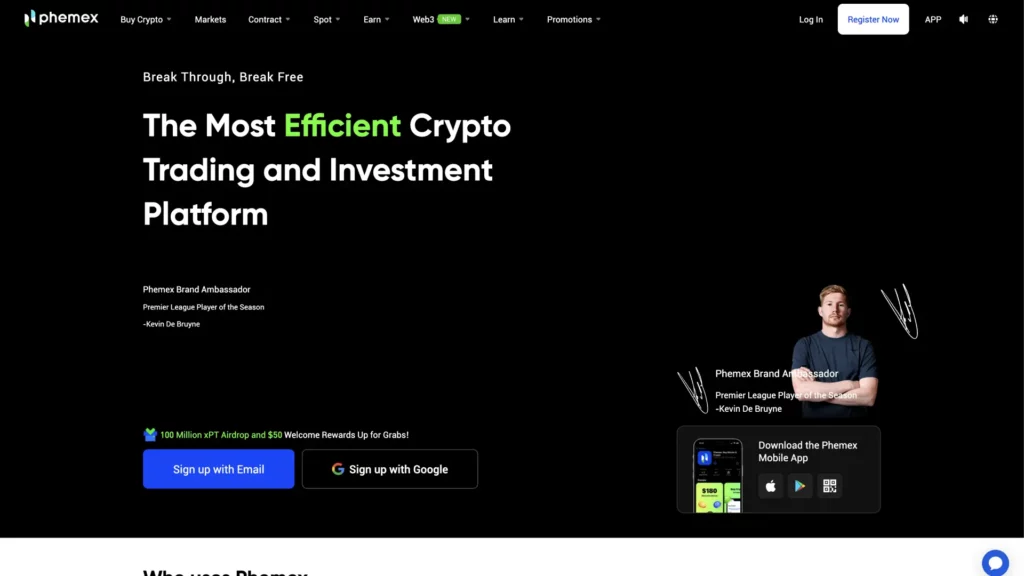
- 0.0001 BTC
- spot trading
- derivatives trading
-
perpetual contracts trading
8
No result
- Ethereum
- Cardano
-
Chainlink
233
No result
- SwiftCash
- Bank Transfer (ACH)
-
Sepa
310
No result
- English
- Russian
-
Japanese
6
No result
- 2FA Google Authenticator
- English
- Japanese
-
German
2
No result
- Blog
- Videos
-
Academy
4
No result
6. ProBit Global

- 0.0005
- spot trading
- staking
-
wallet
2
No result
- ProBit Token
- Bitcoin
-
Geegoopuzzle
638
No result
- Bank transfer
- Visa
-
MasterCard
755
No result
- English
- Azerbaijani
-
Indonesian
42
No result
- South Korea
- 2FA SMS
- 2FA Google Authenticator
-
2FA Microsoft Authenticator
2
No result
- Arabic
- Bulgarian
-
Czech
36
No result
- Videos
- Learn and Earn
-
Academy
1
No result
7. BitMart
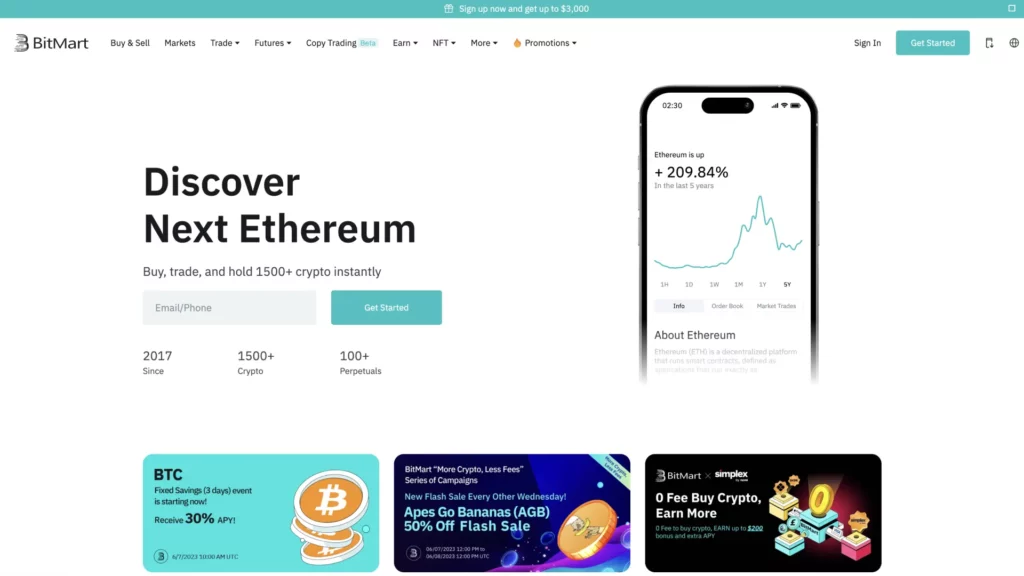
- 0.001
- spot trading
- derivatives trading
-
futures trading
8
No result
- Argentine Football Association Fan Token
- Berry
-
Burn
1616
No result
- Bank transfer
- Bank Transfer (ACH)
-
Visa
1624
No result
- English
- Spanish
-
Japanese
6
No result
- United States
- 2FA SMS
- 2FA Google Authenticator
- English
- News
- Videos
8. Bitstamp
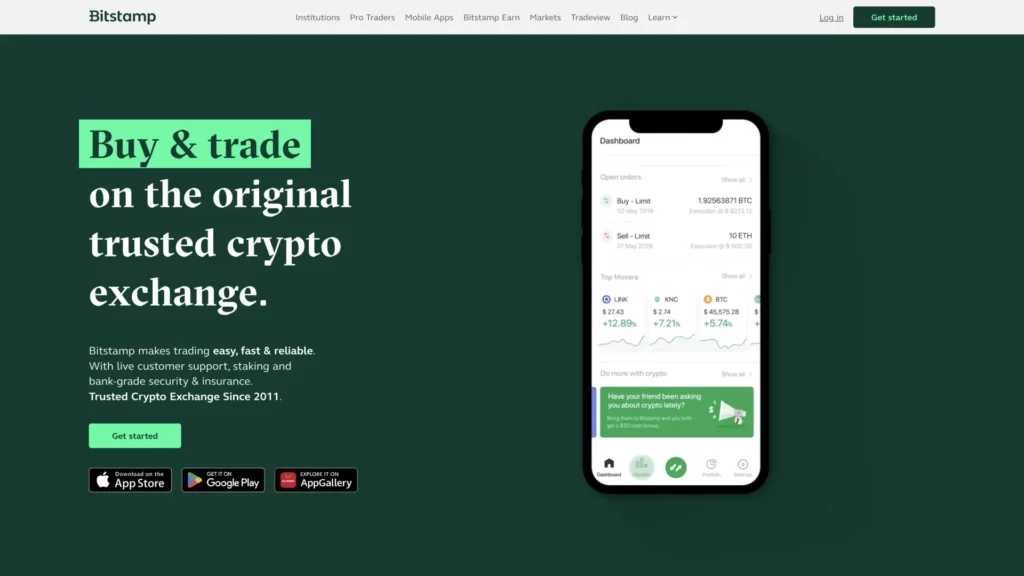
- 0.0005
- spot trading
- staking
- wallet
- Bitcoin
- Ethereum
-
Tether
74
No result
- Bank Wire Transfer
- Bank transfer
-
Faster Payments
86
No result
- English
- Luxembourg
- United States
-
Spain
1
No result
- 2FA SMS
- 2FA Google Authenticator
-
2FA Microsoft Authenticator
1
No result
- English
- Blog
- Learn and Earn
9. Coinbase
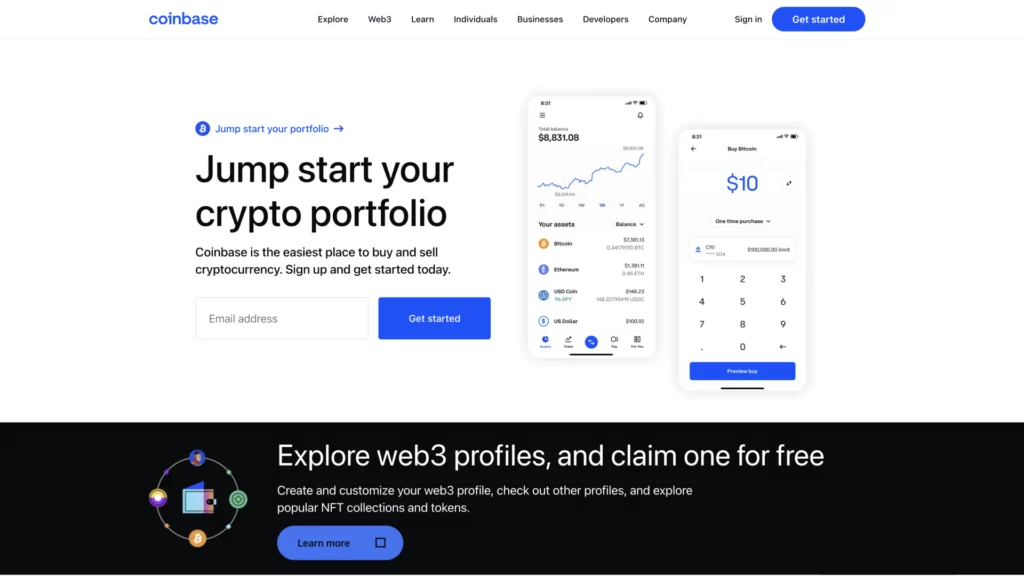
- 1%
- spot trading
- derivatives trading
-
OTC trading
6
No result
- Bitcoin
- Ethereum
-
Tether
584
No result
- Bank transfer
- Visa
-
MasterCard
595
No result
- English
- German
-
French
9
No result
- United States
- Canada
-
United Kingdom
4
No result
- 2FA SMS
- 2FA Mobile App
-
2FA Google Authenticator
2
No result
- English
- Videos
- Tips and Tutorials
-
Basics
4
No result
10. Gemini

- 0.4% or $30 per month per asset
- spot trading
- OTC trading
-
P2P trading
3
No result
- Amp
- Ankr
-
APEcoin
123
No result
- Bank Wire Transfer
- Bank transfer
-
Visa
126
No result
- English
- Spanish
-
Italian
1
No result
- United States
- 2FA SMS
- 2FA Authy
- English
- Spanish
- Cryptopedia
- Blog
-
News
1
No result
Why Is CCN Trustworthy?
The crypto market is a minefield. With minimal regulation, it’s too easy to get swept up in the hype and fall victim to a scam.
There are plenty of review platforms only interested in making money. They don’t care about customers. Instead, they will carelessly recommend low-grade USD Coin exchanges.
At CCN, we believe in the cryptocurrency industry. It’s important for us that you have the best possible exchange experience.
That’s why we have reviewed dozens of USDC trading platforms to date. We investigate vital factors like security, reputation, and user experience.
Each reviewer spends many hours analyzing every relevant facet of the crypto exchange. We won’t rest until we’re convinced that the platform is reputable.
Overview of the Best USD Coin Exchanges in 2024
| Casino | Welcome Bonus | Our Rating |
|---|---|---|
| Blockchain.com | N/A | 4.83 |
| LBank | Get 255 USDT Bonus when you sign up. | 4.83 |
| MEXC | Get 5 USDT bonus when you deposit 300 USDT. | 4.67 |
| Okcoin | Receive $10 in Bitcoin when you register with a referral link and buy $100 worth of crypto on Okcoin. | 4.67 |
| Phemex | Earn up to $6050 in crypto when you sign up | 4.67 |
| ProBit Global | Invite a friend and earn up to 30% of their trading fees as a reward. | 4.67 |
| BitMart | Get Up to $3,000 Welcome Bonus when you sign up. | 4.50 |
| Bitstamp | Not Applicable | 4.50 |
| Coinbase | Earn $10 in Ethereum (ETH) when you stake $100 in ETH for the first time, up to $30 in rewards | 4.50 |
| Gemini | Receive a $10 USD worth of BTC credit when you register with a referral link and trade $100 USD within the first 30 days of registration. | 4.50 |

Disclaimer: Investing in cryptocurrencies carries significant risk. Values are highly volatile. Never invest more than you can afford to lose. This site does not provide financial advice. Act based on your own research and consult with a financial professional before making decisions. Don’t invest unless you’re prepared to lose all the money you invest.
What is USD Coin?
USD Coin (USDC) is a cryptocurrency known as a stablecoin. It maintains a stable value corresponding to the US dollar. Circle and Coinbase launched it in 2018 as a joint project.
USD Coin is pegged to the US dollar at a 1:1 ratio. Every USDC token in circulation has an equivalent amount of US dollars held in reserve by regulated financial institutions. This backing provides stability and confidence in the value of USDC.
This stablecoin uses the Ethereum blockchain. It uses smart contracts for easy transactions and to maintain transparency. It is an ERC-20 token, which means it follows a specific set of standards on the Ethereum network.
This standard allows for compatibility with various wallets and exchanges. It is also compatible with decentralized applications (dApps) that support ERC-20 tokens.
USDC allows easy and efficient transfers of digital dollars on the blockchain. It aims to combine crypto benefits with the stability of fiat money.
Since it is a stablecoin, it is useful for businesses looking to enter the crypto sphere. That’s because it offers lower volatility.
USD Coin has already been quite widely adopted. Various cryptocurrency exchanges, wallets, and platforms support it.
It is reliable if you want a coin that remains stable relative to the US dollar. This is because it offers a bridge between traditional finance and the world of digital assets.
Here’s How to Buy Digital Assets on an Exchange
It’s easy to feel overwhelmed when you access USDC trading platforms for the first time. However, using one is much easier than you think. Here’s a simple step-by-step guide.
Research and select a reputable provider
Start by reading reviews and researching to find a USD Coin cryptocurrency exchange. Look for user feedback, security measures, and the availability of the coins you want to buy.
Binance is a popular exchange known for its wide range of cryptocurrencies. Other options include Kraken and Coinbase.
Sign up and verify your account
Visit the chosen exchange's website and sign up for an account. Provide the required information and complete any verification processes. This may include sending identification documents to follow regulatory requirements.
Choose the coin(s) you want to buy
Once your account is set up, decide on the cryptocurrency you wish to buy. Research different coins, their use cases, and potential risks before deciding.
Set up your payment method
Link a payment method to your exchange account. You can use a bank account, credit card, or other accepted payment options.
Follow the USDC exchange’s instructions to securely connect your preferred payment method.
Deposit funds into your crypto exchange account
Transfer funds from your linked payment method to your account. Follow the deposit instructions on the exchange.
Please ensure you send the funds to the correct wallet address provided by the exchange. As transactions are irreversible, a mistake could result in losing your funds.
Place an order on the exchange
Once you deposit the funds, go to the trading section. Select the cryptocurrency you want to buy.
Next, choose the appropriate trading pair (e.g., BTC/USD or ETH/BTC) if necessary. Set the amount you want to purchase and review the order details.
Execute the trade
Before confirming the transaction, double-check the details of your order. This includes the quantity and price.
Once you confirm, the exchange will execute the purchase and complete the trade on your behalf.
Securely store your coins
After the purchase, it's essential to store the coins securely. Consider using a cryptocurrency wallet that provides a high level of security.
There are two types of wallets: hot wallets (online) and cold wallets (offline). Cold wallets, like hardware wallets, offer better security by keeping your coins offline.
Follow the instructions provided by your chosen wallet to set it up and store your coins.
Of course, the steps provided here are a general guide. I recommend following the specific instructions provided by your chosen USDC trading platform.
You Have Cryptocurrency: What’s Next?
Congratulations, you have navigated the USD Coin exchange and made a purchase! Yet this is far from being the end of the matter.
With crypto, you have a huge range of choices. Here’s a sample of what you can do now that you’re a proud digital currency holder.
Buy goods and services
You can use crypto to buy a wide range of goods and services from merchants and businesses that accept digital currencies as payment. Many online retailers, travel agencies, and even physical stores now accept crypto as payment.
Trade and invest
It is possible to trade your coins on various USD Coin exchanges. These platforms let you buy, sell, and trade different coins.
You can take advantage of price fluctuations with trading. The goal is to profit from buying low and selling high.
Additionally, you can invest in cryptocurrencies with a long-term perspective. As a HODLer, you stay resolute and wait for the price to rise.
Exchange for fiat currencies
You can convert digital money into fiat currencies on crypto trading platforms. By doing this, you convert your crypto holdings into cash.
It’s also possible to complete international money transfers. Better yet, you enjoy low fees and fast transaction times.
Peer-to-peer transactions
Cryptocurrencies allow direct peer-to-peer transactions without intermediaries like banks. You can send funds to others anywhere in the world quickly and securely.
This is especially useful for cross-border transactions. It is also helpful when you deal with countries with limited banking infrastructure.
Decentralized finance (DeFi)
Cryptocurrencies also provide access to decentralized financial applications and services. In this case, DeFi platforms allow you to lend or borrow digital assets.
You can earn interest on your holdings or take part in liquidity pools. Look at it this way; you can engage in other financial activities without any bank interference.
Ways to keep your crypto safe
To ensure the security of your cryptocurrencies, consider the following measures.
Use hardware wallets
Hardware wallets are physical devices designed to securely store your cryptocurrencies offline. They offer an extra layer of protection compared to software wallets or keeping your coins on USDC exchanges.
Enable two-factor authentication (2FA)
Set up 2FA on your exchange accounts and wallets. This adds an extra security measure by requiring a second verification step. With 2FA, you typically need an app or SMS code to access your account.
Backup your wallets
Create regular backups of your wallets' private keys or recovery phrases. This backup will help you recover your funds if your wallet is lost, damaged, or compromised.
Be wary of phishing attempts
Stay vigilant regarding phishing attempts and scams. Be wary of suspicious emails, websites, or links that could compromise your wallet or account information. Always verify the authenticity of the platforms you interact with.
Decentralized and Centralized Exchanges: What’s the Difference?
The difference lies in their underlying architecture and the level of control they offer users. There is also a limited number of hybrid exchanges available. Here's a breakdown of each type.
Decentralized crypto exchange (DEX)
A decentralized exchange operates on a peer-to-peer network, typically utilizing blockchain technology. It allows users to trade crypto directly with each other without the need for mediators.
DEXs use smart contracts to automate trading processes and complete secure transactions. They don't rely on a central authority or custodian to manage user funds or transactions.
As a result, users have full control over their funds and can maintain their privacy. DEXs promote decentralized principles including censorship resistance. They also work to eliminate single points of failure.
But DEXs have low trading volume and liquidity. You will also have relatively few trading options compared to CEXs.
Centralized exchange (CEX)
A centralized exchange is a traditional exchange model. It involves trading with a central entity involved.
These exchanges act as intermediaries, holding user funds in centralized wallets. They also match your buy and sell orders on their platforms.
CEXs often have a more user-friendly interface than DEXs. They provide features like margin trading, advanced charting tools, and customer support.
But users must trust the exchange with the custody and security of their funds. Centralized exchanges enforce regulations and perform know-your-customer (KYC) checks.
Also, they are vulnerable to hacking risks and potential regulatory actions.
Hybrid exchange
A hybrid exchange combines elements of CEXs and DEXs. It offers the benefits of decentralization while addressing some limitations.
In a hybrid exchange, some aspects are centralized. They include order matching and liquidity. Meanwhile, custody and control over funds remain decentralized.
Hybrid exchanges often use off-chain order books and on-chain settlement. They combine the scalability and speed of CEXs with the security and control of DEXs. This approach strikes a balance between user control and convenience.
It’s a given that you need to have trust in a hybrid platform. Also, you may need to meet KYC checks, and hybrid sites tend to be targets for hackers.
An Overview of How USD Coin Exchanges Work
A crypto marketplace is a platform where buyers and sellers can interact to trade. It acts as a meeting point for supply and demand, making it easy to exchange digital assets.
An exchange is a type of crypto marketplace. It allows users to buy, sell, and trade various digital assets.
Here's an outline of how an exchange works and its functions as a supply and demand meeting point.
Order placement
USD Coin exchange users can place different orders, such as market or limit orders.
You get a market order at the current market price. On the other hand, a limit order lets you select a price that you want to sell or buy at.
These orders are stored in the exchange's order book.
Matching buyers and sellers
When a buy order matches a sell order on the exchange, you have a trade. The USDC trading platform’s matching engine pairs the orders based on their price and timing.
For example, let’s say you place a buy order at a price that matches or exceeds a sell order's price. In this case, there is a trade, and the ownership of the coins is exchanged between the parties involved.
Order fulfillment
Once you have a trade, the USD Coin exchange ensures that the buyer receives the purchased cryptocurrency. It also guarantees that the seller receives the corresponding payment.
This process involves updating the relevant parties' account balances and transaction records.
Market liquidity
The number of active buyers and sellers on the platform determines the exchange’s liquidity. Higher liquidity means more participants. The result is increased trading volume and tighter bid-ask spreads.
Market liquidity is crucial for smooth trading. It ensures that buyers and sellers can find counterparties to complete their trades.
Price discovery
The best USDC trading platforms act as marketplaces. There, supply and demand interact to determine the prices of cryptocurrencies.
The constant buying and selling pressure contribute to price discovery. As supply and demand dynamics change, the exchange’s prices can fluctuate accordingly.
Order book
The exchange maintains an order book that displays users' open buy and sell orders. The order book shows each cryptocurrency's current supply and demand levels. In this way, it is transparent.
Traders can analyze the order book to assess market depth and make informed trading decisions.
Security and compliance
Crypto exchanges focus on security measures to protect user funds and personal information. They install various security protocols. These may include two-factor authentication, encryption, and cold storage for funds.
Additionally, reputable exchanges adhere to regulatory requirements. Such sites may conduct Know Your Customer (KYC) procedures to verify the identities of their users.
Author Tip: Register with More than One Platform
Storing your crypto on more than one exchange can provide several benefits. For instance, it could enhance the security and flexibility of your holdings.
Here are some reasons why it is helpful to diversify your storage across different exchanges.
Risk distribution
You reduce the risk of storing all your assets in a single location. Imagine one exchange experiences a security risk or technical issues. There is even a chance that it could go out of business.
In this case, your funds on other exchanges are not affected. Diversifying your holdings reduces the risk of losing all your assets at once.
Enhanced security measures
Different exchanges may use varying security measures and protocols to safeguard user funds. Aside from this, storing your crypto on many exchanges allows you to enjoy the security practices of each platform.
For instance, a certain USD Coin trading platform might have outstanding security. In this instance, you can take advantage of those measures for some of your holdings.
Availability of assets
Not all USDC exchanges support the same cryptocurrencies. By using several exchanges, you’re more likely to find one that offers the coins you want.
You gain access to a broader range of investment opportunities as a result. This means you have more flexibility as a trader or investor.
Liquidity and trading opportunities
Each exchange has its own user base. It also has different trading volumes and liquidities for different cryptocurrencies.
You can take advantage of all this by diversifying your holdings. This can help you secure better prices and execute trades more efficiently.
Exchange features and services
USD Coin exchanges often offer different features. These may include margin trading, lending, or specialized trading options. You can access a wider range of features and services using two or more platforms.
Thus, you can tailor your trading and investment strategies to the offerings of each platform.
Geographic considerations
Cryptocurrency regulations and restrictions can vary by jurisdiction. You can bypass issues with regulations by storing funds on exchanges in different countries.
It can also offer access to greater trading options and liquidity in different markets.
Diversifying storage across many exchanges can offer many advantages. Even so, it's important to consider certain factors. For instance, look into a platform’s exchange reputation, security practices, and user experience.
Additionally, you must securely manage multiple USDC exchange accounts. Maintaining proper backups of your login credentials and recovery information is also necessary. Otherwise, you could lose control over your assets.
Important Questions When Selecting USD Coin Exchanges
You must consider several factors when you choose the right crypto trading platform. Here's a breakdown of some important considerations to help you make an informed decision.
How good is the security level?
Ensure the exchange prioritizes security measures to protect user funds. Look for features like two-factor authentication (2FA) and cold storage for funds. Other options should include encryption protocols and regular security audits.
Also, check whether the exchange has a history of security breaches or a robust insurance policy to compensate users in case of any losses.
How large are the transaction fees?
Compare the transaction fees charged by different USDC exchanges. Some may have a flat fee per transaction, while others use a percentage-based fee.
Consider how the fee structure aligns with your trading volume and frequency. Additionally, check for hidden fees or charges, such as deposit or withdrawal fees.
Can you find the cryptocurrencies you want?
Check the range of digital coins offered by the trading platform. Ensure it supports the specific coins or tokens you want to trade or invest in.
A diverse selection of cryptocurrencies gives you more trading options and opportunities. Additionally, check whether the exchange adds new coins to its platform to stay updated with the evolving crypto market.
Is the trading platform liquid?
Liquidity is the ease of buying or selling crypto without impacting its price.
USD Coin exchanges with higher liquidity generally have more active traders. They also have higher trading volumes. This can lead to tighter bid-ask spreads and better price execution.
Look for trading platforms that offer good liquidity for the cryptocurrencies you intend to trade.
Does the site adhere to international and local laws?
Check whether the exchange is licensed or registered with the relevant authorities where it operates.
Compliance with legal requirements helps ensure that the exchange follows best practices. It also offers a secure and reliable trading environment.
Can you find a suitable payment method?
Consider the variety of payment methods accepted by the exchange. Popular options include bank transfers, credit/debit cards, and payment processors.
Having many payment methods available provides convenience and flexibility. That being said, do consider any associated fees or restrictions for each payment method.
Are there enough products for a professional trader?
A high-quality crypto exchange will offer traders various products and features. This enhances a person’s trading experience. Here are some common products and services you can expect from such a platform.
Spot trading
Spot trading allows you to buy or sell cryptocurrencies at the current market price. You can execute trades directly with other users on the exchange. This means that you will take immediate ownership of the assets after buying them.
Margin trading
Margin trading allows you to trade with borrowed funds. As a result, you can leverage your positions to potentially amplify profits.
You can borrow funds from the USDC exchange or other users. By doing this, you boost your buying power. This means you get to trade larger positions than your account balance would permit.
Yet margin trading involves greater peril and requires careful risk management.
Futures contracts
A high-quality exchange may offer futures contracts for various cryptocurrencies. Futures enable you to speculate on the price movement of a cryptocurrency without owning the underlying asset.
You can go long (betting on price increase) or short (betting on price decrease) and trade contracts with predefined end dates.
Options trading
Options trading gives you the right to buy or sell crypto at a predetermined price and within a specific timeframe.
It lets you hedge your positions or speculate on price movements with limited risk.
Advanced order types
High-quality USD Coin trading platforms often provide advanced order types to cater to different trading strategies.
These can include limit orders, stop-loss orders, trailing stop orders, and more. These order types give you greater control over their trades. They also allow for automated execution based on specific market conditions.
Mobile trading apps
The best USDC exchanges provide user-friendly mobile applications for convenient online trading. These apps offer cool features such as real-time market data and order placement. Other perks include portfolio tracking and account management.
The availability of specific products and features can vary between exchanges. Before choosing a platform, assess your trading needs and preferred strategies. Also, consider the specific products that align with your goals.
This research will help you find one that best suits your trading requirements.
Does the USDC Coin exchange educate users?
A crypto exchange that values user education should provide various educational tools. Such info helps users understand and navigate the complexities of cryptocurrency trading.
Here are some educational resources and tools that a high-quality exchange might offer.
Beginner's guides
Beginner's guides introduce new users to cryptocurrencies, blockchain technology, and trading basics. These guides can cover a wide array of topics. They may include creating an account, making transactions, and executing trades on the platform.
Tutorials and video content
Video tutorials can explain complex concepts and show how to use the exchange's features.
These tutorials can cover topics like placing orders and using advanced trading tools.
Educational articles and blogs
Exchanges can maintain a blog or article section where they publish educational content on cryptocurrencies and trading. These articles might delve into market analysis, trading strategies, risk management, and industry trends.
Market analysis and research reports
The best USD Coin trading platforms provide market analysis reports. They also include research papers offering insights into the crypto market.
There are reports that cover market trends. Other documents may focus on price analysis. Others could look into fundamental analysis of specific cryptocurrencies.
Demo trading accounts
Some exchanges offer demo or simulated trading accounts. As a result, you can practice trading without using real funds.
These accounts enable you to familiarize yourself with the exchange's interface. You can also test different trading strategies and gain hands-on experience in a risk-free environment.
Customer support
Granted, it is not a traditional educational tool. Yet prompt and knowledgeable customer support is crucial for user education.
A high-quality exchange should provide responsive customer support channels. Tools like live chat, email, or phone support should address user inquiries.
A crypto exchange can empower users with knowledge of these educational tools and resources. It can also help them make informed decisions when engaging with the cryptocurrency market.
Final Word
USD Coin (USDC) stands as a stablecoin, maintaining a 1:1 value ratio with the US dollar. It's bolstered by backing from regulated financial institutions. Utilizing the Ethereum blockchain and smart contracts, USDC offers efficiency and transparency for seamless transactions. Its adoption by various platforms and exchanges highlights its reliability and appeal for businesses seeking stability in the crypto space.
Navigating a USDC exchange involves simple steps, enabling users to access various opportunities such as buying goods/services, trading, investing, peer-to-peer transactions, and exploring decentralized finance (DeFi). Safety measures, including hardware wallets and two-factor authentication, enhance security.
Frequently Asked Questions
How many active crypto trading platforms are there?
There are nearly 600 crypto exchanges, but not all are active. A substantial proportion of them has few users and low liquidity. It is also best to focus on the platforms outlined on this page. Each one is well-known, has many users, and has a high trading volume.
What services will I find on a USD Coin exchange?
The best trading platforms are more than places to buy and sell digital assets. They let you use sophisticated order types such as stop-loss, not to mention standard options like margins and futures. Moreover, they serve as a convenient place to store your coins until you find a long-term home for them.
Which exchanges offer the highest liquidity for USDC?
The best USD Coin (USDC) exchanges that offer the highest liquidity are Binance, Coinbase Pro, and Kraken. These exchanges have established themselves as industry leaders with a large user base and extensive trading volumes.
Binance, being one of the largest cryptocurrency exchanges globally, provides a diverse range of trading pairs for USDC. Coinbase Pro, known for its user-friendly interface and robust infrastructure. Kraken, renowned for its advanced trading features and security measures, also offers substantial liquidity for USDC with its large pool of active traders.
Are there any exchanges with low transaction fees for trading USDC?
Yes. In 2024, several exchanges offer low transaction fees for trading USDC. One of the most prominent options is StellarXchange, a decentralized exchange built on the Stellar blockchain.
Due to its decentralized nature, StellarXchange operates with significantly lower overhead costs compared to traditional centralized exchanges. As a result, they are able to pass on these savings to their users in the form of lower transaction fees.
Which exchanges have the best user interface and experience for trading USDC?
There are several exchanges that stand out for their exceptional user interface and trading experience when it comes to USDC. One of the top contenders is “CoinTradeX,” a cutting-edge platform that has revolutionized the way users interact with digital assets.
CoinTradeX boasts a sleek and intuitive interface, making it easy for both beginner and experienced traders to navigate through various trading pairs and execute transactions seamlessly.


